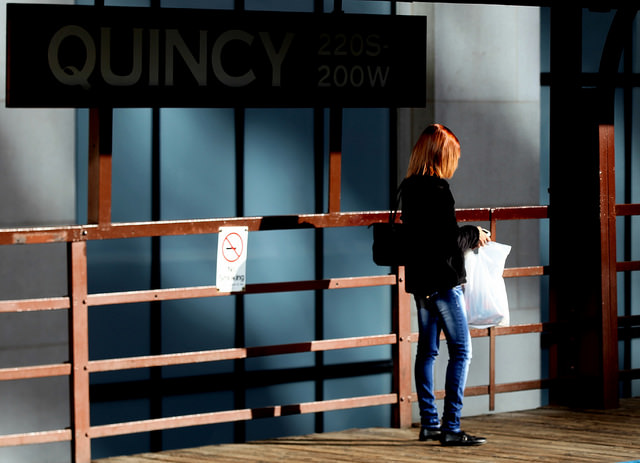Are CTA Bag Checks Against Our Fourth Amendment Rights?
By Margaret Paulson in News on Mar 13, 2015 7:30PM
After four months of random bag checks at more than 40 CTA stations, the results are in: Officers checked 2,600 bags, found zero explosives and made only one arrest. The bag-check initiative, which began Nov. 3 and had full support of Mayor Emmanuel, is funded by a grant from the Transportation Security Administration and currently has no end date.
The CTA announced it has not received any complaints from the public regarding the bag checks. But what about the one arrest made? Turns out, protestor Scott Davis, 43, told the RedEye he was acting in protest of the violation of his Fourth Amendment rights— which can be registered as a very public complaint, CTA— by refusing to have his bag checked and then attempting to board a Brown Line train. Davis was charged with criminal trespass to state land and disorderly conduct. According to policy, riders are able to refuse bag checks but must leave the CTA station or face arrest. However, refusing a bag check does not stop someone from entering the same station via another entrance, or boarding at a different stop.
So, are the bag checks actually against our Fourth Amendment rights?
According to MacWade vs. Kelly— a Second Circuit Court ruling in 2006— no. The case was brought by the ACLU against the Commissioner of the New York City Police Department and the City of New York after subway bag checks were enacted in 2005, which were in response to the Madrid and London subway bombings of 2004 and 2005. The ruling sets precedent for five requirements that must be met for these programs to be deemed constitutional, including:
1. “Passengers receive notice of the searches and may decline to be searched so long as they leave the subway.”
2. “Police search only those containers capable of concealing explosives.”
3. “A typical search lasts only for a matter of seconds.”
4. “Uniformed personnel conduct the searches out in the open, which reduces the fear and stigma that removal to a hidden area can cause.”
5. “Police exercise no discretion in selecting whom to search, but rather employ a formula that ensures they do not arbitrarily exercise their authority.”
While Mayor Emanuel has defended the measures in Chicago for providing public security while protecting privacy, critics contend that the measure is simply for show— afterall, there are 145 CTA stations and thousands of riders passing through them each day. Others insist that the bag checks could be used to target young, male minorities. It's yet to be seen whether the measure has yielded more harm than good.
